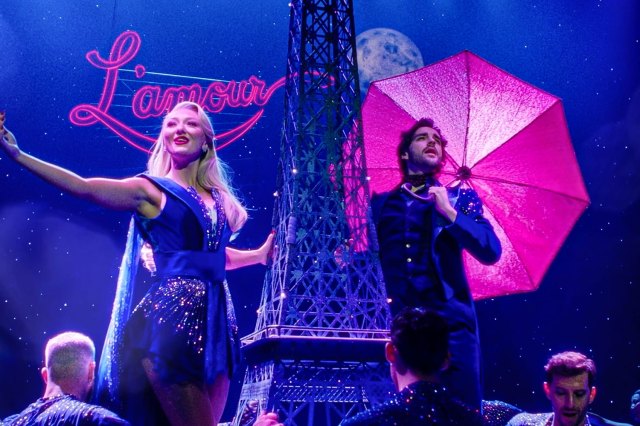Frozen
In 1980, ten-year old Rhona is abducted and murdered by a serial killer. This is the trigger by which ordinary lives are changed forever by an extraordinary event.
Bryony Lavery‘s outstanding play is essentially a series of monologues spoken by Rhona’s mother, Nancy (Anita Dobson), Ralph, the serial killer (Tom Georgeson) and Agnetha, the Icelandic-American criminal psychologist interviewing him for her research (Josie Lawrence). The isolation of the monologue is a fitting way for these three to tell their stories, for each is frozen by circumstance and state of mind and the process of thawing is supremely painful.
For 20 years after Rhona’s disappearance, Nancy keeps hope alive by imagining her daughter growing up and founding a self-help group to trace missing children. Then a man is arrested and Rhona’s remains are found. The hate that replaces hope is equally paralysing.
At the heart of the play is Nancy’s route from hatred to forgiveness. Amongst her conflicting maternal emotions are flares of resentment for her surviving daughter, whose own painful voice arises clearly out of Dobson’s intimate, open and often funny performance, a lesson in how to bear the unbearable.
At the same time, Lavery takes us on a disturbing journey inside the murderous mind of Ralph. While chilling in his meticulous planning and his objectification of his victims, Georgeson’s extraordinarily detailed portrayal actually manages to move us from feelings of horror to pity for this wretched creature. He too is a victim of abuse trapped in suspended animation. Alongside his lurid sexual fantasies are pathetic ones of a childhood filled with love and poetry.
As Agnetha, whose psychology seeks to unlock and explain the ‘frozen arctic sea’ of the criminally sick mind, Lawrence perhaps has the hardest role. The supposedly objective scientist has her own emotional life – she’s trying to come to terms with the sudden death of a lover and colleague – but this is overshadowed by the cataclysm of the central story. Still, Lawrence’s feisty presence is a welcome foil to the intensity of emotion, while her exploitation of Ralph for research purposes raises uncomfortable issues even as she seeks to enlighten.
Switching from monologue to duologue as the characters struggle to free themselves, the meeting between mother and serial killer provides one of the play’s most affecting scenes, the power of it buoyed by some canny directorial decisions. Ralph’s donning of reading glasses to look at Nancy’s family photos is typical of the fine detail of Bill Alexander‘s spare, sensitive direction, which is matched by Ruari Murchison‘s uncluttered set, set off by a curtain of uplights through which the actors materialise.
– Judi Herman












